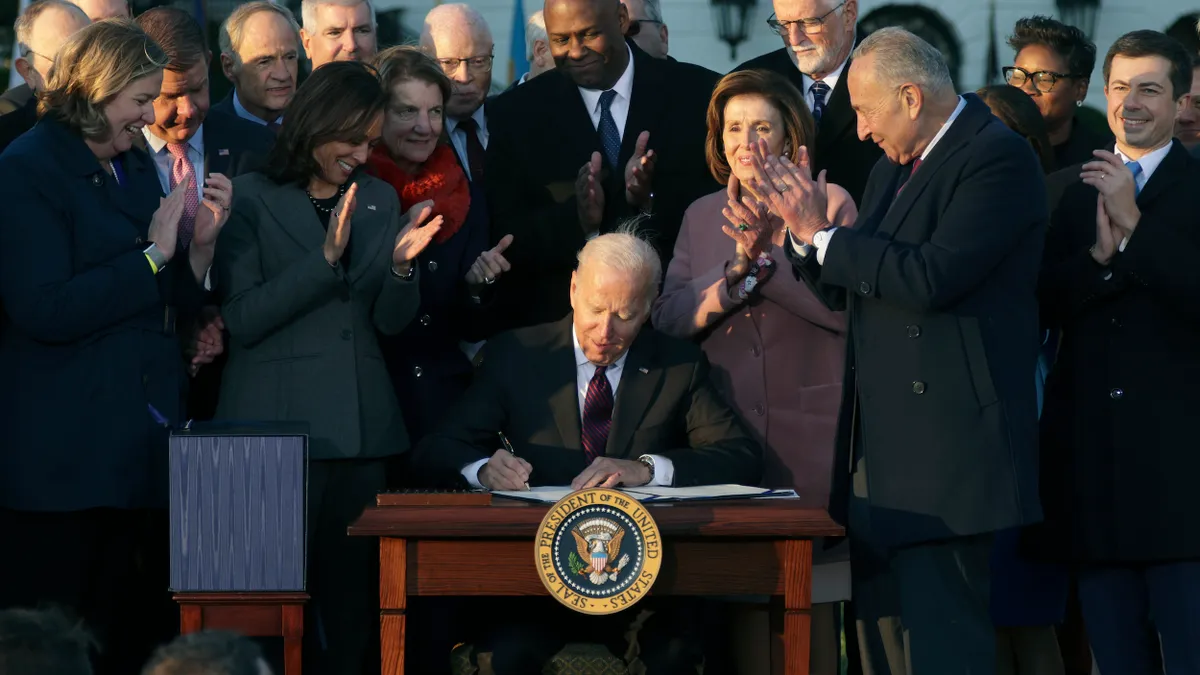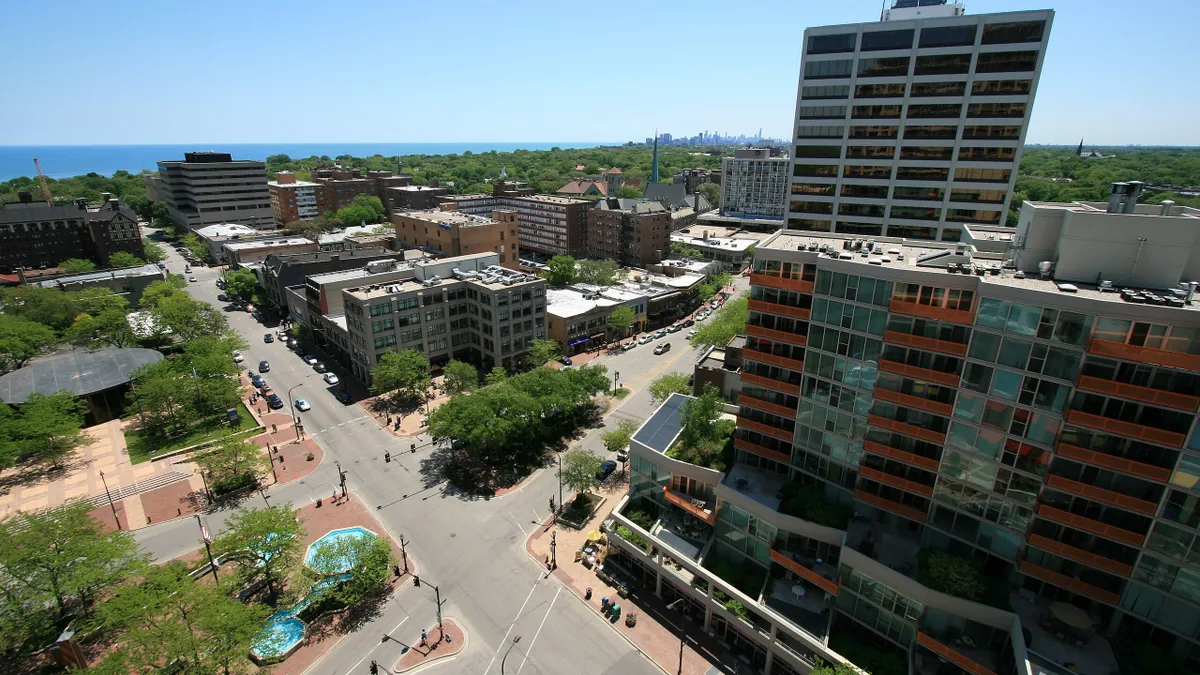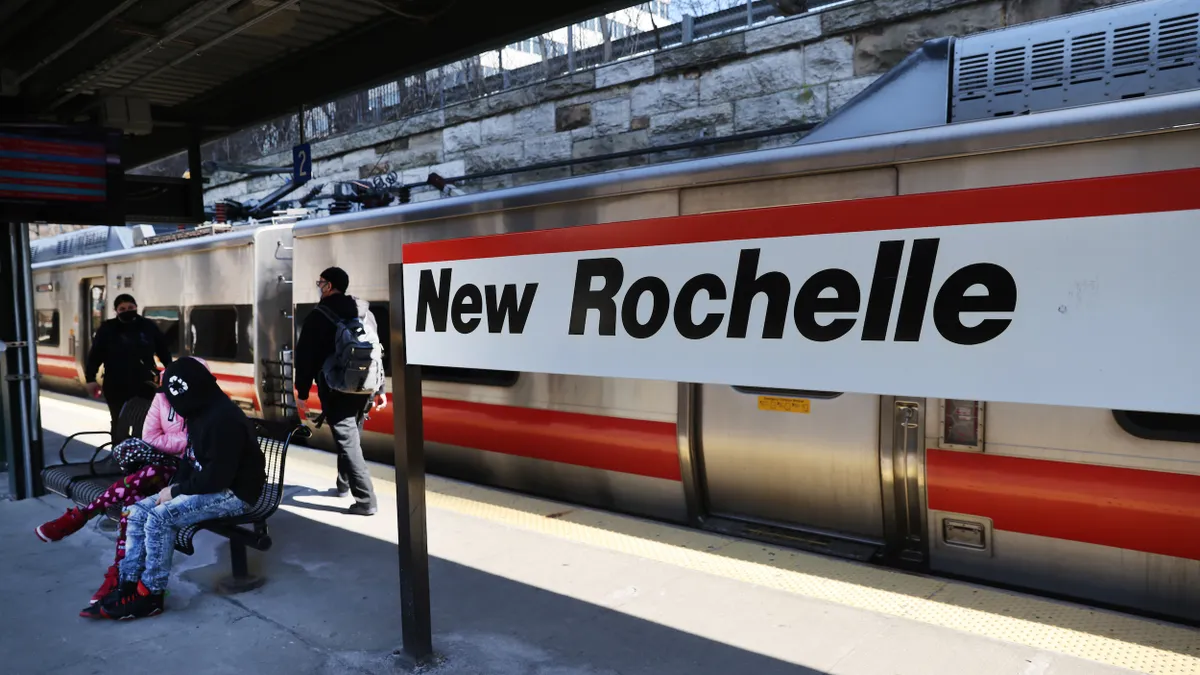Evanston, Illinois, wants to phase out natural gas in new buildings, with the City Council aiming to develop and pass a policy this year. But a development last week will “definitely flavor” the city’s discourse around developing a rule, said Councilmember Jonathan Nieuwsma in an interview: The U.S. Court of Appeals for the Ninth Circuit overturned a landmark rule banning gas in new construction in Berkeley, California, following a lawsuit by the California Restaurant Association that claimed the city bypassed federal energy regulations.
“Is it intimidating? No,” Nieuwsma said of the potential for litigation over Evanston’s efforts to phase out gas. “But it is certainly something we’d like to avoid.”
Since Berkeley became the country’s first city to ban gas in new buildings in 2019, a spate of other cities and counties have followed, and “they should prepare for litigation because the natural gas industry is fighting for its life,” said Carra Sahler, staff attorney at Lewis & Clark Law School’s Green Energy Institute.
The decision “certainly puts another arrow in the quiver” of “well-funded and well-organized opponents” of building electrification policies, said Amy Turner, senior fellow at Columbia Law School’s Sabin Center for Climate Change Law, in an interview.
Although the federal appeals court decision only applies in the Ninth Circuit — which comprises Alaska, Arizona, California, Hawaii, Idaho, Montana, Nevada, Oregon, Washington, Guam and the Northern Mariana Islands — Turner is concerned that the decision will chill building electrification efforts nationwide in small communities with limited staff and financial resources to hire outside legal counsel.
“Even if everyone understands that they'd be on the right side of the litigation if it were to come to fruition, just that fear of incurring those costs can be really significant in a lot of places,” she said.
Turner offers reassurance to those communities: “Totally lawful opportunities” exist for local governments to phase out gas in new buildings, she said. The Green Energy Institute’s Sahler agreed.
Outside of the Ninth Circuit, local governments can use their “police powers,” as Berkeley did, to prohibit gas piping in new buildings as a matter of health and safety, Turner asserts in a blog post. If sued over this approach, a local government could defend it as lawful, but Turner warns that this is “a strategy approach not to be taken lightly,” as conflicting circuit court decisions could make the Supreme Court more likely to take up the case.
In states where cities and towns have authority over building codes, they can require or incentivize all-electric construction, since the federal Energy Policy and Conservation Act contains a statutory exemption preventing it from preempting state and local building codes, Turner said.
The building code approach can be “time-consuming,” however, Sahler said, as codes must meet seven conditions outlined in EPCA and require technical expertise to craft. An advantage of the building code approach is that it allows local governments to very specifically tailor the rules, she said.
“Whereas a Berkeley-style ban is more like a blunt instrument saying no new gas, building codes give cities versatility to allow it in some buildings or not in others, phase electrification in, encourage certain kinds of appliances over others,” Sahler said.
New building electrification can also result from local governments setting air emissions standards that prohibit combustion of substances with high carbon emissions, according to Turner’s blog post, although only New York City has taken this approach to date. “Legal questions remain in connection with the air emissions standard approach, particularly with respect to limitations of state law, but many local governments retain authority to regulate air pollution to some degree,” she writes.
As long as state law allows them to, local governments can also phase out gas through zoning regulations or renegotiation of franchise agreements with utilities if they were to “decide not to allow new pipes in its public rights-of-way,” Sahler said.
Both of these options are on the table in Ann Arbor, Michigan, said the city’s sustainability and innovations director, Missy Stults.
“I think litigation is always something we think about and plan for,” Stults wrote in an email. “And yet we have a very clear mandate from the public and our elected leaders that we need to equitably address the climate crisis, protect public health, reduce safety risks from things like explosions, and be a leader and innovator.”




















